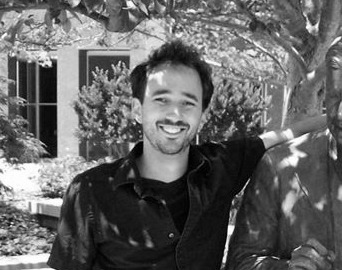The Walking Dead returned Sunday, February 8, 2015 for the second half of its fifth season. 15.6 million people tuned in. I was one of them.
The show has a knack for subverting our expectations of a television show and what it should give us as viewers. A premiere, for example, should be fast-paced, something with twists and turns that reels us in and makes us want to watch the rest of the season. And instead, we got a somber, soulful, poetic hour about nothing more than closure before an inevitable death. Yes, that was the writers’ idea of a midseason premiere, and it was beautiful.
But then I read a piece that gave me pause: “I love The Walking Dead—but its relentless misery is taking its toll,” (link no longer accessible) a piece from The Guardian’s Luke Holland, who asks why he keeps watching season after season as cast members inevitably die off and matters become increasingly dark.
He’s right. That’s all that seems to happen on The Walking Dead. The apocalypse has no end-game and there seems no point in the group continuing on. It is bitterly nihilistic, unforgiving in its bleak cynicism. When certain members of the group become ambassadors for a long-lost humanity, they usually die. Ultimately, that is what the midseason premiere chose to focus on: the fact that the good people can no longer make it, that those who cannot kill to survive are better off simply moving on. It was beautiful, but it is nonetheless an indication of things to come. Bad things happen to good people in The Walking Dead. In fact, bad things happen to everyone.
Showrunners have continually exemplified a willingness to push the boundaries of tastefulness on the airwaves. The season five premiere, which aired back in the fall, opened with the main characters stuck in a cannibal gulag, their fellow prisoners being beaten over the head with a baseball bat, having their throats slit open, the blood draining into a giant trough. Even for someone who has seen so much violence in so many different mediums, it was hard to watch.
But here’s the thing: I don’t really care. I don’t care how bad things get. I don’t care how much this show keeps upping the ante. I don’t care how dark or cynical or nihilistic it really is. I don’t care if there’s no point. I find something meaningful in that, something that I find beautiful. But why do we find beauty in nothingness and ugliness and violence? Why do we find beauty in a dark and treacherous world vacant of any purpose? The Walking Dead is at its core just a group of apocalyptic survivors trying to stay alive. Why do they want to live? Why do they continue on? We don’t really know. Would we want to? Probably not.
The Walking Dead isn’t alone. So much of our television and film is rife with existentialism. Batman was never a happy-go-lucky figure, but even Superman now roams around wondering what his purpose is and ultimately choosing in Man of Steel not to save humanity so much as cement the extinction of his people. James Bond isn’t simply some suave, wisecracking super-spy anymore; now he treats his work with the grim seriousness of a man who wonders why he’s even alive. I would hardly be the first person to write about post-9/11 nihilism in cinema and pop culture more generally (there is an excellent, thought-provoking piece (link no longer accessible) on Christopher Nolan’s The Dark Knight and the Freudian death wish that you should read if interested…), so I won’t. But the impact of the September 11th terror attacks on the collective American psyche should not go unstated in any analysis such as that in which I am now dabbling (and dabble is the right word… A complex examination you will not find in the confines of so few words).
I do not purport to know why things are the way they are, and why pop culture and mass media have become so unforgivingly bleak—or at least why bleakness has become the new normal to a large extent—in the digital age, but I do see some discomfiting implications that should be noted.
To suggest a correlation between the Internet and the nihilistic cinema of which I have spoken would be incorrect; but what does it mean for a digital society when the members thereof seem either to romanticize death, loss, longing and regret, and when they, as humans have done for so long, look to the end—of life, of humanity, of the planet, etc.—rather than to the beginning (of a future that could be made bright if we use the Internet and technology in the right ways)?
Part of the reason I cannot adequately examine this issue is because of the immense scope of the explanation, which lies in basic human psychology. The Walking Dead, The Dark Knight, and Man of Steel are hardly the first TV shows and movies to perpetuate a dark and nihilistic message. Look to A Clockwork Orange or the classic Japanese film The Bad Sleep Well. Even further back, look to the existential dread of Hamlet. And is not the Book of Job a pretty nihilistic work in and of itself? Humanity’s love of darkness is nothing new.
If we can learn anything from The Walking Dead, it is that the inception of the Internet and the rise of this so-called digital age does not ensure a new utopia in which all look happily forward to the future we can create with the productive, responsible use of progressive technologies. Instead, it further complicates our existence. Technological progress, on a psychological level, would seem not to leave us in a better position than we were before necessarily, but may rather move us back, further drawing into question why exactly we even exist.
It is hard not to gaze upon humanity’s current obsession with our gagets and social media outlets and to wonder whether our supposed happiness—and the element of performance inherent therein, as Erving Goffman would have it—is authentic. I may be cynical; I may be nihilistic; I may be wrong, but I do not believe it is.
What The Walking Dead makes so dishearteningly explicit is that the highly filtered euphoria so often proclaimed on Instagram and Twitter and Facebook serves largely as a veil, masking the authentic angst that lies at the root of human psychology. We want our friends and our followers to believe that we have it all figured out, yet every Sunday night, well over 10 million people tune in (not counting the millions more who watch on DVR or online—legally or illegally) to ask themselves what the point really is.
Maybe our viewing habits today provide a better glimpse at what Goffman called the back stage, where the metaphorical, performative guises under which we operate in the social realm are eschewed in favor of an authentic indication of who we are.
In the second episode of this half season, as the group trudges wearily onward, one character asks how much longer they have. And while another character answers her question assuming she was referring to the distance of their walk, we understand that isn’t what she really meant.
Perhaps The Walking Dead is so popular because we really don’t know who we are. We don’t know why we are, and we don’t know how much longer we will have, how much longer we can make it. The sort of death wish of which Sigmund Freud spoke so many years ago is still embodied in human interests and interactions, made explicit by our love of nihilism. Maybe in the end, more than we like to admit and more than is reflected on our social media pages, we love The Walking Dead because we see it—and all its dark, bitter angst—within ourselves.




